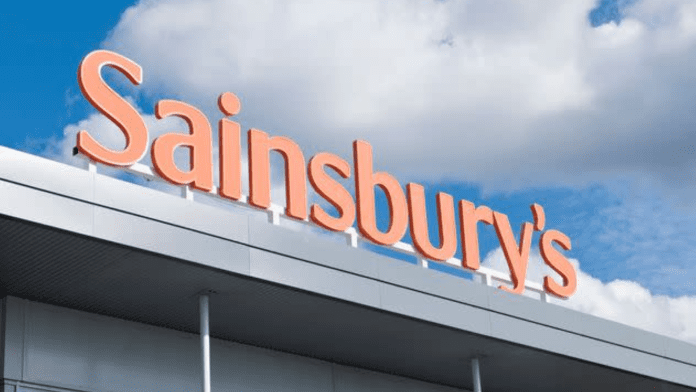Sainsbury’s, the British supermarket chain, has commenced its new financial year with significant momentum despite the uncertain outlook for consumer spending. The company has predicted a profit outcome that exceeds market expectations.
The inflation in the UK has been surging for over a year, and it has outpaced the growth of salaries for almost all employees, putting pressure on Britons.
In March, official data from the UK revealed that food prices had risen by 19.1% compared to the same month in the previous year, marking the most significant increase since August 1977. Furthermore, industry data indicates that grocery inflation was 17.3% in April.
On Thursday, Simon Roberts, the CEO of Sainsbury’s, informed reporters that the company has consistently raised its prices less than its primary competitors. As a result, the supermarket’s customers have paid “less than half the headline rate of inflation”.
With a 15% share of the UK’s grocery market, Sainsbury’s is attempting to balance the escalating expenses of procuring products from suppliers and keeping its customers from shifting to budget-friendly retailers such as Aldi and Lidl. Additionally, the company is facing elevated employee wage expenses.
Sainsbury’s underlying pre-tax profit for the year ending on March 4 was £690 million ($861 million), which was at the upper end of its guidance but a decline from £730 million in the previous year (2021-22).
Sainsbury’s revenue increased by 5.3% to £31.5 billion, with like-for-like sales in the fourth quarter rising by 7.8%.
Sainsbury’s has projected a profit range of £640-£700 million for the fiscal year 2023-24, surpassing the analysts’ mean prediction of £631 million.
“It’s a really strong set of numbers,” said one top 50 shareholder, particularly highlighting Sainsbury’s free cash flow of 645 million pounds.
Sainsbury’s stocks dropped by 0.6% at 11:33 GMT, but have surged by 30% since the beginning of the year. Bestway, the owner of Costcutter, has acquired a 4.47% stake in Sainsbury’s, but it has denied having any intentions to initiate a takeover bid.
Earlier in April, Tesco, the market leader, posted a 6.3% drop in annual profit and predicted a flat outcome for 2023-24, while in March, Asda, the third largest supermarket, reported a 24% decrease.
Despite performing well against its traditional competitors, Sainsbury’s is still losing market share to discounters as they continue to open new stores, according to monthly industry data.
Sainsbury’s invested over 560 million pounds in the two years leading up to March 2023, financed by cost savings, to maintain competitive prices and this has affected its profit. The supermarket is matching Aldi’s prices on hundreds of crucial items and utilizing its Nectar loyalty program.
The pre-tax profit for the year 2022-23, as required by law, decreased by 62% to 327 million pounds due to the impact of asset impairments. Despite this, a dividend of 13.1 pence per share, consistent with the previous year, will be distributed. (Conversion rate: $1 = 0.8012 pounds)




